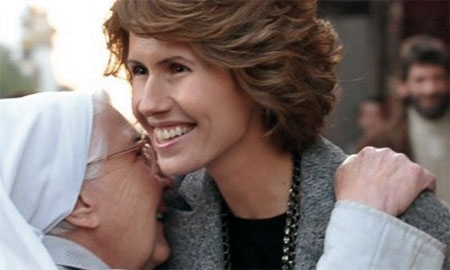Each culture is all too often negatively portrayed by the other as evil, backwards and violent. Well-traveled folk know, nevertheless, that while certain stereotypes may in some cases go skin-deep, for the most part each culture is a complicated yet rich product of centuries of history and cannot be understood at just a cursory glance.
One frequent misconception the West has about the East is connected to the role of women in Arab society. Dr. Bouthania Shaaban, a renowned scholar and respected politician who has served as political and media advisor to the President since 2008, has published various works on the subject, and some of her findings could possibly help tear down the wall of misunderstanding.
At a lecture held at Damascus University in 2006, Dr. Shaaban stated that she had found “it is not true that women's liberation in the West started in the 1960s or 1970s. I have researched this topic in both 19th and 20th century Arab media, and I found that Arab women contributed extensively to the efforts made at the end of the 19th century and beginning of the 20th century in respect of the cause.”
She also talks about how a Syrian girl, wearing traditional Syrian dress, visited American universities in 1892 and “called on the West to liberate its women, because at this time, Arabic women felt they were in a more advantageous position in terms of women’s rights.”
Despite these early equal rights movements, Dr. Shaaban says that unfortunately these anecdotes are left out of educational textbooks, leaving most of society in the dark as to the role of women and their contributions throughout the ages.
Syria’s most public female figure who has spent plenty of time in the limelight for her contributions is the First Lady, Asma al-Assad. Born and educated in the U.K., Mrs. Assad has far from adopted the role of passive wife. Instead, she has put her professional business experience to excellent use in Syria.
The first area in which she took an active role in empowering not just women but all of the underserved was in rural development.
In her first year as First Lady, Mrs. Assad visited over 100 villages, gaining first-hand insight into the challenges these communities face. Consequently, she established Syria’s first NGO: the Fund for Integrated Rural Development of Syria, or FIRDOS.
She later went on to help establish Massar, a national project focusing on helping young Syrians today to play an active role in shaping their society tomorrow, and SHABAB (Strategy Highlighting and Building Abilities for Business), which equips the youth with valuable skills to enter the world of business. These three NGOs and projects all operate as part of the Syria Trust for Development, chaired by Mrs. Assad.
One of Syria’s most heartwarming NGOs, BASMA (Battling to Smile Again), is also headed by a woman. Mayya Assad chairs this organization founded in 2005 to provide emotional, psychological and social support to children with cancer.
Another admirable Syrian woman is Hanan Kassab Hassan, CEO of the Opera House as well as published author and translator for screenplays and theatrical adaptations. Mrs. Hassan’s work has helped bring the world closer to Arabic speaking society and opened greater cultural dialogue.

0 COMMENTS